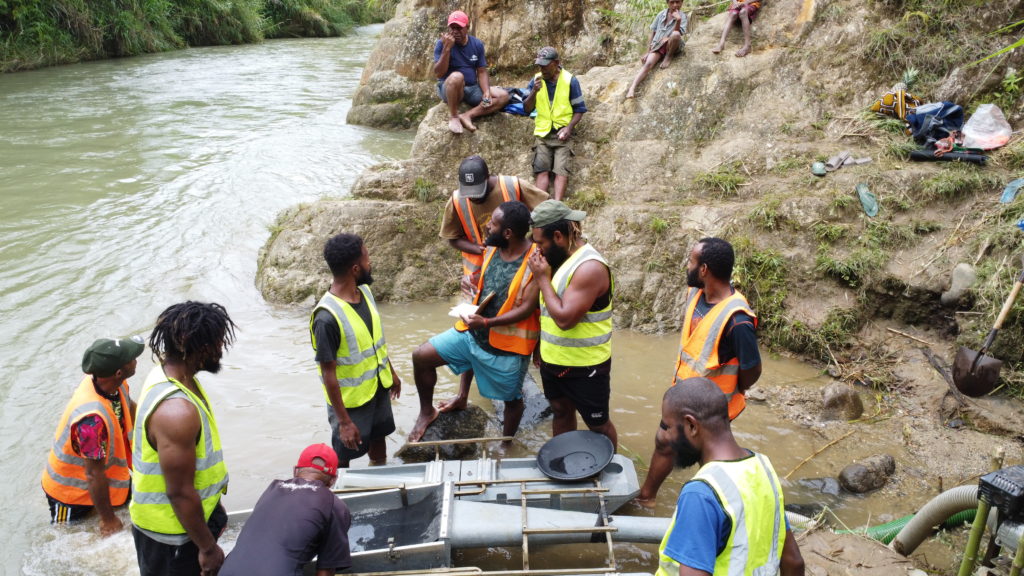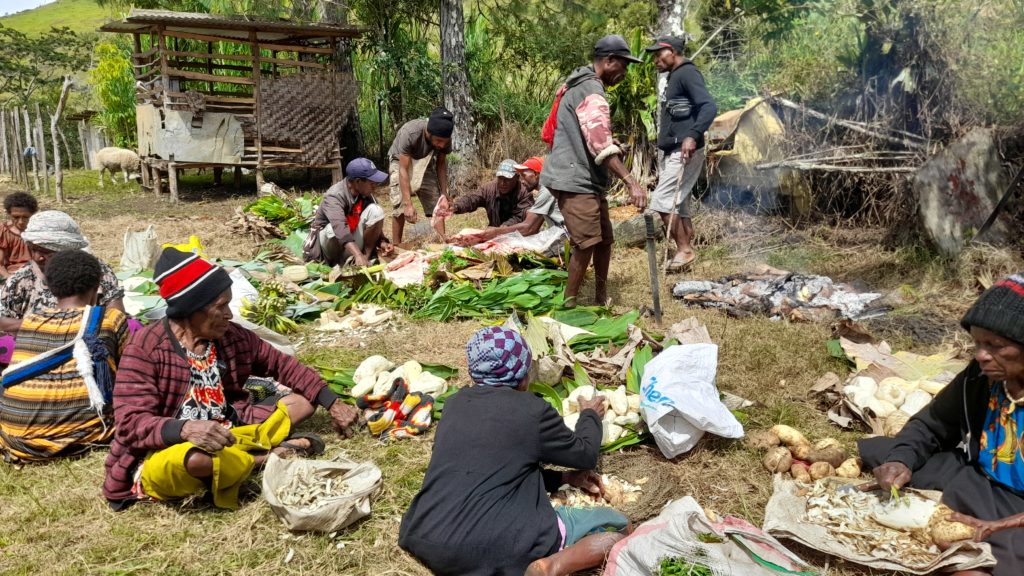"Forging Connections: Empowering Communities through Collaboration"
At the School of Mining & Mineral Process Engineering, our commitment to community engagement acts as a vital link between industries and academia, facilitating collaboration and innovation. By working closely with local industries in Papua New Guinea, we create invaluable opportunities for students and stakeholders to influence the future of the region’s mining and mineral processing sector. Through meaningful partnerships and impactful initiatives, we motivate and empower our community to drive sustainable development and advancement in Papua New Guinea’s mining industry. Join us in this transformative endeavor as we unite to build a brighter and more sustainable future for all.

In early January 2024, a group of 12 final year students from Mining & Mineral Process Engineering embarked on alluvial gold dredging at the Upper Bena District of the Eastern Highlands Province as part of their industrial training. Guided by the principles of responsible and sustainable small-scale mining practices.
In adhering to the principles of alluvial small-scale mining practices, the students prioritized environmental conservation, community engagement, and safety protocols throughout the dredging process.
With a focus on minimizing environmental impact and fostering positive relationships with local communities, they implemented efficient techniques while respecting the natural ecosystem. Under the mentorship of Dr. Jim Pae Lem, Mr. Raymond Korova, and Mr. Philip Rumints, the students gained invaluable hands-on experience in sustainable mining practices, preparing them to become conscientious professionals in the mining industry. Moreover, the expedition provided a platform for the students to explore innovative technologies and methodologies in alluvial gold dredging, fostering a spirit of inquiry and innovation within the team. Through collaborative problem-solving and critical analysis, they developed practical solutions to challenges encountered during the dredging process, contributing to the advancement of best practices in small-scale mining operations.
In addition to implementing principles of responsible mining practices, the students actively monitored and assessed the environmental impact of their activities, conducting regular evaluations to ensure sustainability and compliance with regulatory standards. They also participated in community outreach initiatives, collaborating with local residents to promote awareness of environmental conservation and responsible resource management.
The students actively engaged in collaborative efforts with neighboring communities throughout the dredging process. By fostering open dialogue and partnership, they worked closely with local stakeholders to address concerns, share knowledge, and ensure mutual benefit. This collaborative approach not only strengthened community relationships but also underscored the importance of sustainable development and shared prosperity within the region. Through initiatives such as skills training, environmental education, and infrastructure improvement projects, the students contributed to building resilient and inclusive communities, fostering a legacy of positive impact beyond the confines of the mining site.

By actively involving community members in decision-making processes and resource management discussions, the students helped cultivate a sense of ownership and empowerment, laying the groundwork for sustainable development and social cohesion in the region.
